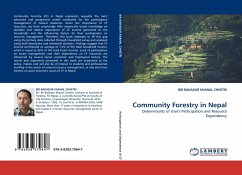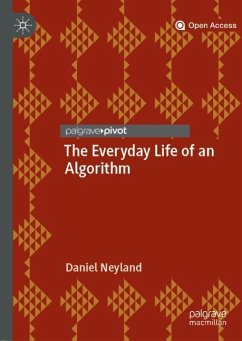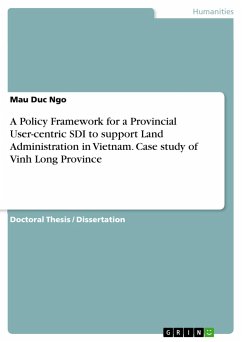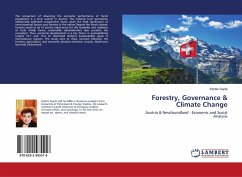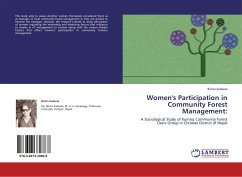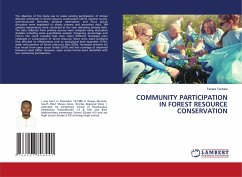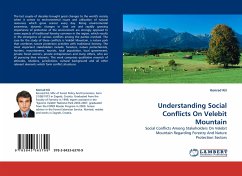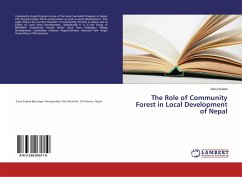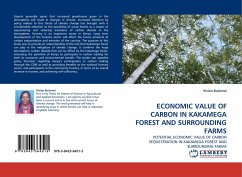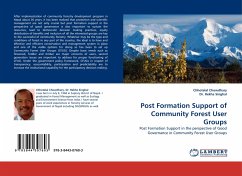
Post Formation Support of Community Forest User Groups
Post Formation Support in the perspective of Good Governance in Community Forest User Groups
Versandkostenfrei!
Versandfertig in 6-10 Tagen
32,99 €
inkl. MwSt.

PAYBACK Punkte
16 °P sammeln!
After implementation of community forestry development program in Nepal about 30 years, it has been realized that protection and scientific management are not only crucial but post formation support in the perspective of good governance is also important to sustain the resources, lead to democratic decision making practices, equity distribution of benefits and inclusion of all the interested groups are key to the successful of community forestry. Whatever may be the type and conditions of forest in any part of the country, the ideal is to have and effective and efficient conservation and manag...
After implementation of community forestry development program in Nepal about 30 years, it has been realized that protection and scientific management are not only crucial but post formation support in the perspective of good governance is also important to sustain the resources, lead to democratic decision making practices, equity distribution of benefits and inclusion of all the interested groups are key to the successful of community forestry. Whatever may be the type and conditions of forest in any part of the country, the ideal is to have and effective and efficient conservation and management system in place and one of the viable options for doing so has been to set up Community Forest User Groups (CFUG). Despite basic needs such as firewood, fodder and timber are major concerns of users, second generation issues are important to address for proper functioning of CFUG. Under the government policy framework, CFUGs in respect of transparency, accountability, participation andpredictability are to increase the institutional capability for the participatory decision making.



